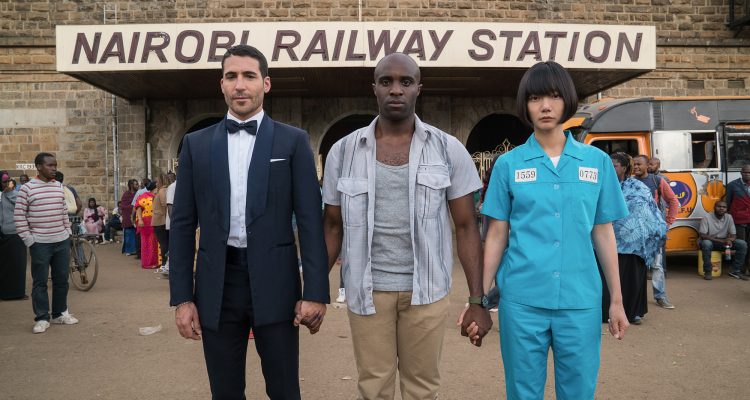Over the past couple few weeks, something remarkable happened: Netflix revealed they are human. The streaming super giant canceled two high profile shows, “Sense8” and “The Get Down,” a decision that made waves, given the company’s goals to program as much original content as possible. For those paying attention, the move wasn’t entirely surprising, with founder and CEO Reed Hastings recently saying he wanted Netflix to cancel more shows and take bigger risks. That’s the ideological reasoning behind “Sense8” and “The Get Down” getting canned, but the practical reason is far more ordinary.
“A big, expensive show for a tiny audience is hard even in our model to make that work very long,” Netflix’s Chief Content Officer Ted Sarandos admitted at PGA’s Produced By conference (via Variety).
Indeed, “The Get Down” was reported to cost $12 million per episode, and “Sense8” clocked in at $9 million per show, and that’s certainly a bottom line that’s hard to sustain, particularly if the series weren’t capturing the zeitgeist. As for Netflix’s rivals around town, they’re pretty happy to see the streaming service come back down to Earth.
READ MORE: Tilda Swinton Clarifies: She Never Said Her ‘Okja’ Character Was Based on Ivanka Trump
“I’m glad they’re canceling shows,” Nick Grad, FX’s President of Original Programming said at the ATX Television Festival (via Vulture). “They can’t have 10,000 shows … I think it brings them back in the ecosystem of where we’re all trying to make the best shows and the best decisions.”
Craig Erwich of Hulu noted that the plain economics of television production means that it was only a matter of time until Netflix had to make some hard decisions. “If canceling shows is the phase where they are, it makes sense,” he said.
While Netflix’s colleagues may be toasting to the streaming service facing some of the same reality they do, with a warchest of billions of dollars, and a global audience reach of over 100 million subscribers, this is not even a mere bump in the road for the company as they continue to change the media landscape.

